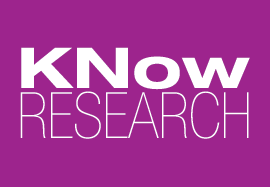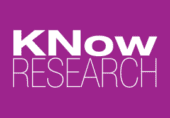Benefits of Bringing Your Whole Self to a Market Research Industry Event
This past month, I attended the QRCA 2022 Annual Conference in San Diego. Being a first-timer to the conference, I went in eager to make connections and learn more about the industry, but I was also, admittedly, self-conscious. I felt inexperienced walking into a room of seasoned qualitative experts and young professionals with already stacked resumes. I wasn’t there as a speaker, award winner, or vendor. I still felt relatively new to the industry and — having started work during the pandemic — in-person professional settings like conferences. “What on earth am I doing here?” I went in thinking. But then I started meeting people, and it was clear that they wanted me there and valued my contribution — even if I was just there to learn. I recognized a shared openness, kindness, and warmth, traits that make not just good qualitative researchers, but great professional connections and mentors. My negative self-talk didn’t last long in that crowd.
If I had to name what I felt at the outset of the conference, it would be imposter syndrome, defined as the belief that one is “undeserving of their achievements and the high esteem in which they are, in fact, generally held.” I knew my team at KNow Research sent me to QRCA because they trusted me to represent the company and wanted me to learn from my experience. Clearly, I had a reason to be there, but I was still doubting myself. I had this imagined fear that someone would approach me and say “Oh, I’m not sure you have enough experience to attend.” Instead, my assigned QRCA ambassador greeted me and said, “Emily! So nice to meet you in person. I have tons of people I want to introduce you to.” From the Ambassador Program to the Young Professionals Special Interest Group, to the shiny First-Timers Ribbon you get on your badge that acts as a beacon to seasoned conference attendees to make you feel welcome, it was really difficult to keep being down on myself around people constantly trying to lift me up!
I was soon able to shed some of my self-consciousness and make the most of my conference experience. I learned helpful, qualitative specific tips — about recruiting Gen Z participants, writing inclusive screeners, and enhancing presentations, to name a few — but I learned greatly from sessions that asked us to look inward. There were sessions about building empathy, being kind to yourself, recognizing and responding to compassion fatigue, and being authentically you. The theme of the conference was “Reimagine Research.” It seemed that the tone of several conversations and sessions was how to not only reimagine the industry, but reimagine ourselves as researchers, professionals, and people.
I attended a session on circuitous career paths that brought people into the qualitative industry, one on maximizing experiences as the world opens up post-pandemic lockdown, one on how to “live your best life and be your best self,” and one of bringing balance into life. All of these (and several others, in fact) shared this of piece advice: be vulnerable with other people. This vulnerability—translated also as bringing your whole self to work and all your interactions—is necessary to making more meaningful, lasting connections and grow despite the stressful shared circumstances everyone has experienced in the past few years. Because when we share, they said, we can feel less overwhelmed, less alone, or make another person feel that way and develop a stronger connection—the kind of connections that sustain us and can last a whole career. To hammer home the importance of these connections, the seasoned conference attendees often name-dropped a professional connection turned lifelong friend that they met early on in their career, sometimes even at their first QRCA conference.
The presenters acknowledged vulnerability can be difficult. There is a generational divide with comfortability in vulnerability where younger generations are more inclined to share about their lives, needs, and identities in all settings — even those previously considered strictly professional — than older counterparts. I also believe there is a divide there, so it was comforting to hear people say that this trait more common in us “young folks” can be beneficial to us all. As I told some other conference attendees about the imposter syndrome I’d been feeling, conversations that started as self-deprecation morphed into a mutual exchange of experiences, insecurities, and advice…and somehow always ended in laughter. Turns out it wasn’t necessarily over-sharing at all. I was honing a superpower that made me a good qualitative researcher and QRCA member.
Imposter syndrome can be tough to keep at bay, but by the end of the conference, I felt like I had an army combatting it with me. I’d made friends as well as professional connections. More than that, I feel more confident now going into interactions as my whole self. And I know for certain that I would love to repay the favor someday, and make another first-timer feel just as welcome!
If you’re interested in quality mentorship, connections, and opportunities, please check out QRCA.

